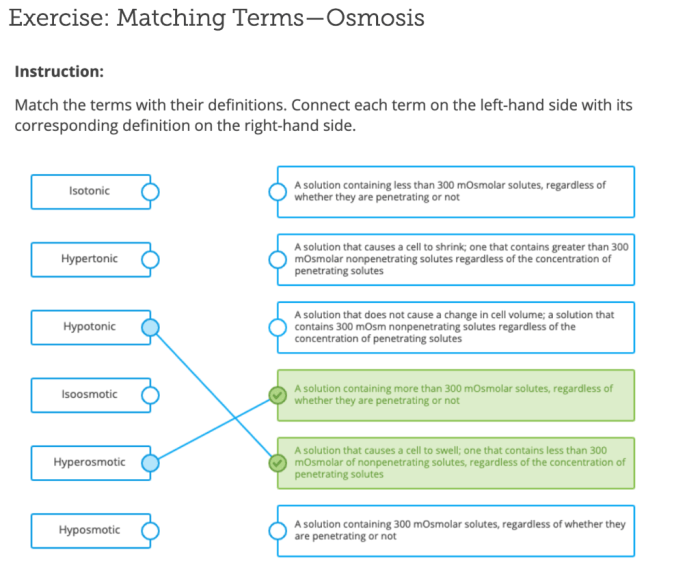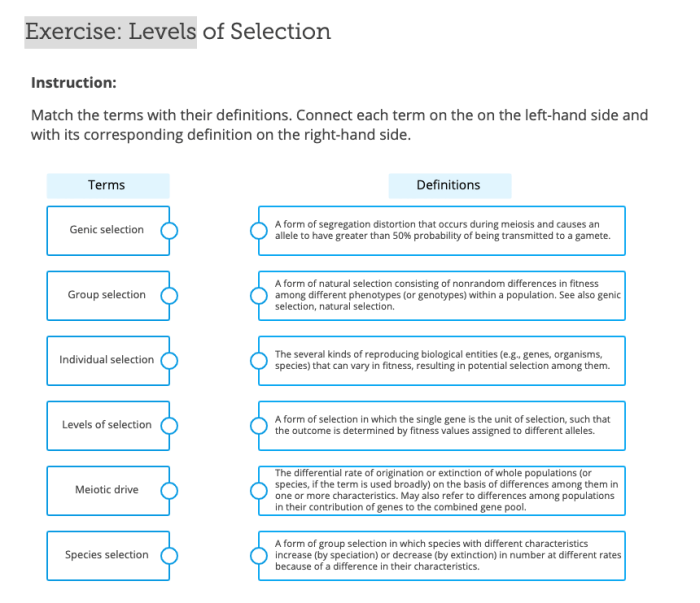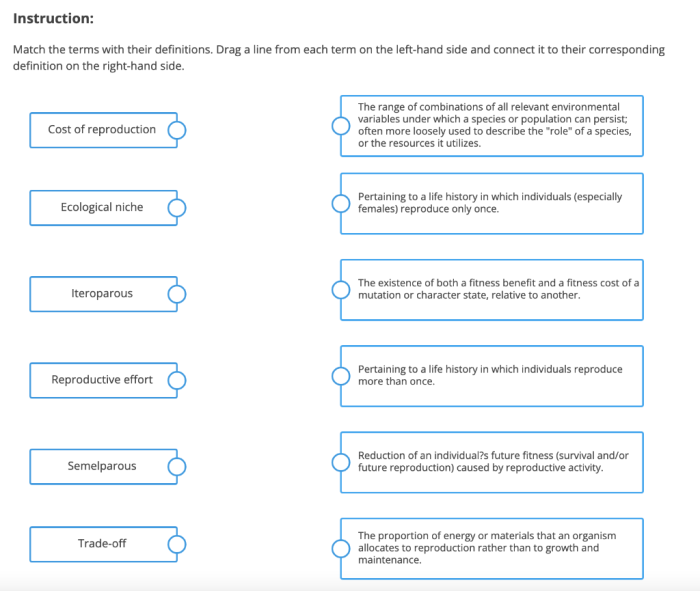Match each term to the corresponding definition. – Match each term to the corresponding definition, a fundamental educational technique, plays a pivotal role in enhancing learning outcomes. This comprehensive guide delves into the intricacies of creating and utilizing matching exercises effectively, exploring their benefits and applications across various educational contexts.
Matching Terms to Corresponding Definitions

Matching exercises are a valuable tool for educators and learners alike. They help improve memory, comprehension, and critical thinking skills. In this article, we will explore the concept of matching terms to corresponding definitions, discuss its importance, and provide examples of different types of matching exercises.
Importance of Accurate Matching, Match each term to the corresponding definition.
Accurate matching is crucial for effective learning. When terms are matched to their correct definitions, learners develop a deeper understanding of the concepts being taught. This is because matching exercises require learners to actively engage with the material and make connections between different pieces of information.
Types of Matching Exercises
- Simple Matching:This is the most basic type of matching exercise, where learners are given a list of terms and a list of definitions and asked to match them up.
- Multiple Choice Matching:This type of exercise is similar to simple matching, but learners are given a list of terms and a list of multiple choice definitions and asked to choose the correct match for each term.
- True/False Matching:This type of exercise requires learners to determine whether each term is correctly matched to its definition.
- Rank Ordering Matching:This type of exercise requires learners to put a list of terms in order from most important to least important or from first to last.
Questions and Answers: Match Each Term To The Corresponding Definition.
What are the benefits of using matching exercises in education?
Matching exercises improve memory and comprehension, develop critical thinking skills, and facilitate active learning.
How can matching exercises be used for assessment?
Matching exercises can assess students’ understanding of concepts, vocabulary, and relationships between terms.
What are some common challenges in creating matching exercises?
Ambiguity, multiple interpretations, and ensuring clarity and precision are common challenges.



